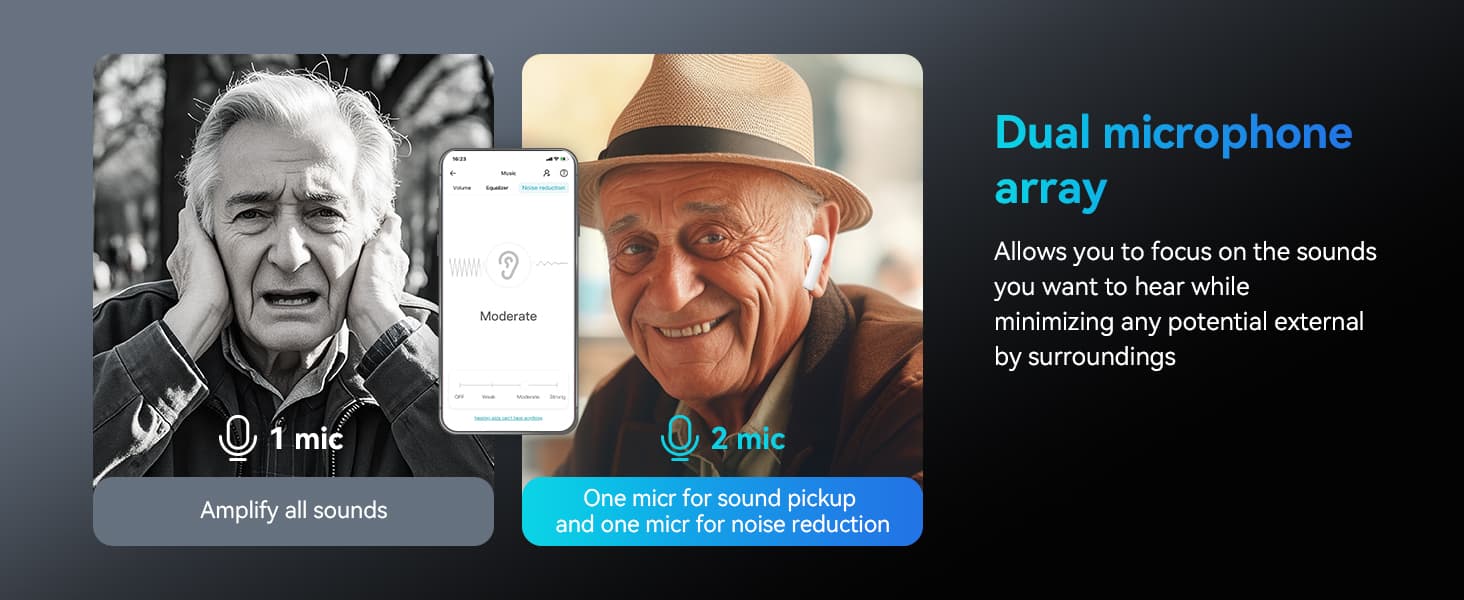Table of Contents

Symptoms of High-frequency Hearing Loss
- Amy
- Jan 23, 2025
- 0 Comments
High-frequency hearing loss refers to a decrease in the ability to hear high-frequency sounds. It is not as dramatic as sudden deafness and often develops slowly and is easily overlooked until it affects daily life.
1. Difficult to detect early symptoms:
The early symptoms of high-frequency hearing loss are very subtle, and many people tend to attribute them to other reasons, such as aging, fatigue, or environmental noise.
These symptoms include:
(1) Difficulty understanding speech, especially in noisy environments.
This may be the most common early symptom. Even in a relatively quiet environment, a person with hearing loss may have difficulty understanding a conversation, especially when the speaker has his or her back to you or speaks in a low voice. People with high-frequency hearing loss will often ask the other person to repeat what they are saying and will misunderstand certain words, especially those with more high-frequency sounds. This difficulty is more obvious in noisy restaurants, parties, or meetings.
(2) Difficulty hearing high-pitched sounds.
Female or child voices are more difficult to hear than male or low-pitched voices. Birdsong, bells, and the sounds of some musical instruments (e.g., the high notes of a piano) may also become unclear or even inaudible.

(3) Auditory fatigue: After being in a noisy environment for a long time, hearing-impaired people will feel auditory fatigue and even tinnitus.
(4) Feeling that other people's speech is unclear, like a "buzzing" sound: This may be due to sound distortion caused by the loss of high-frequency sound.
(5) The volume of the TV or radio is getting louder and louder: In order to hear the conversation clearly, you will unconsciously turn up the volume, but your family members think the volume is too loud.
2. More obvious late symptoms (if not treated in time):
If high-frequency hearing loss is not intervened in time, the symptoms will gradually worsen.
(1) Severe difficulty in understanding speech: Even in a quiet environment, it is difficult to understand complex conversations, especially when multiple speakers are involved.
(2) Social withdrawal: Due to communication difficulties, you may gradually reduce social activities and avoid participating in occasions that require a lot of communication.
(3) Decreased work and study efficiency: Hearing problems will affect work and study efficiency, such as difficulty keeping up with the content of meetings and inability to clearly understand the content of lectures.
(4) Mental stress and anxiety: Long-term hearing problems can cause mental stress and anxiety, affecting the quality of life.

(5) Inability to hear the phone ring or doorbell: Loss of high-frequency sounds can cause you to miss important calls or visitors.






















Comments (0)